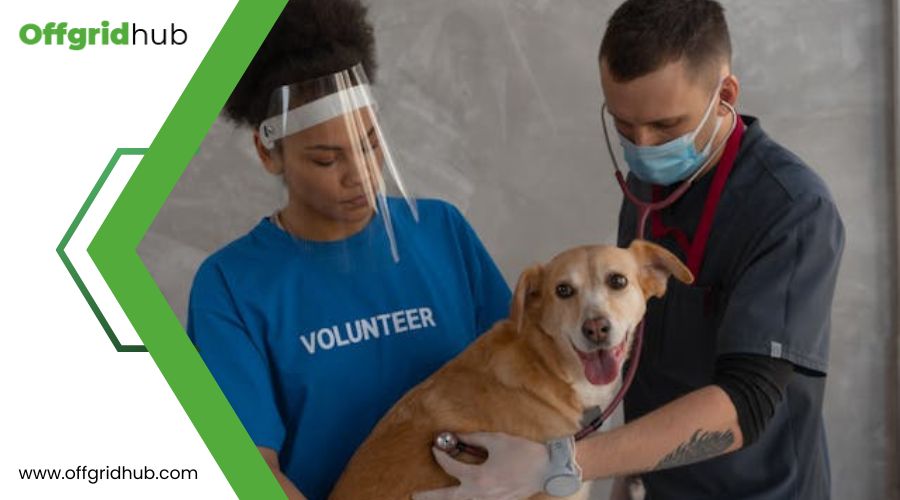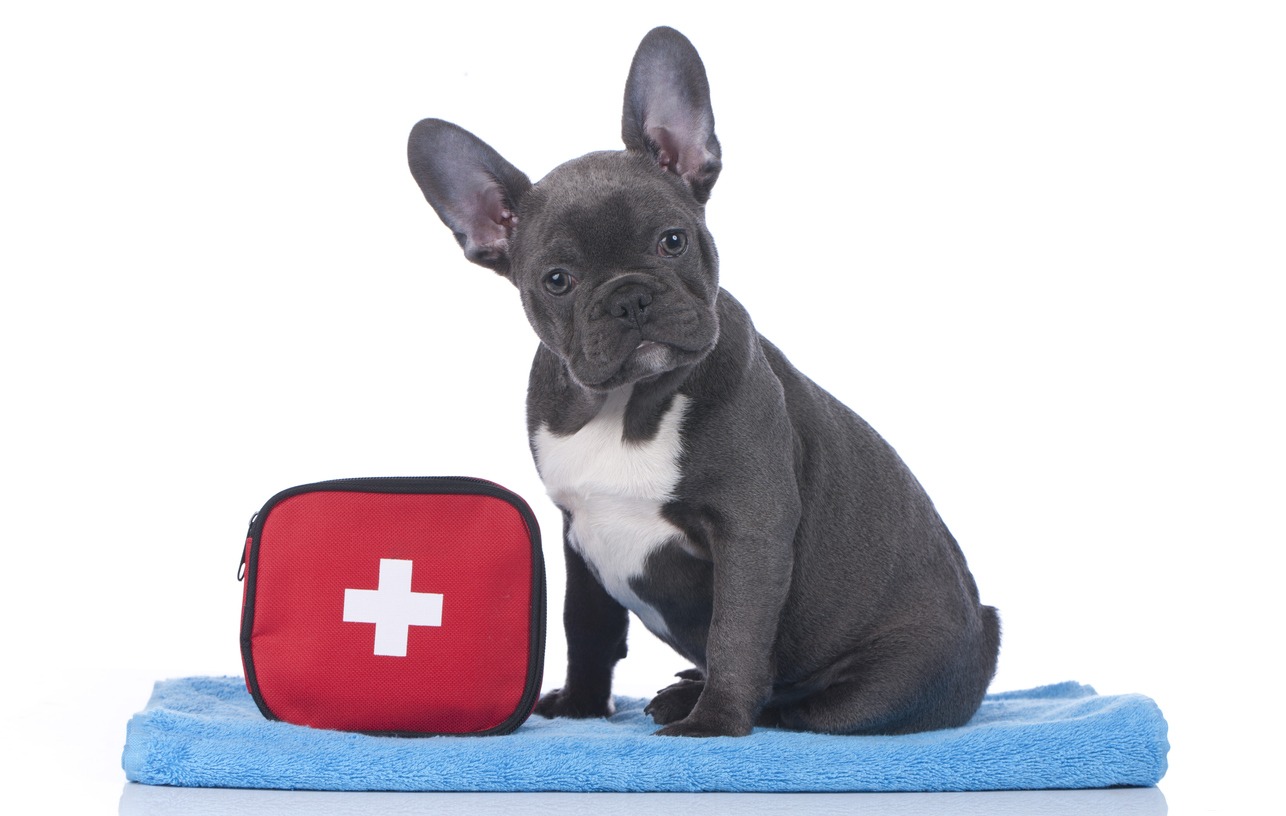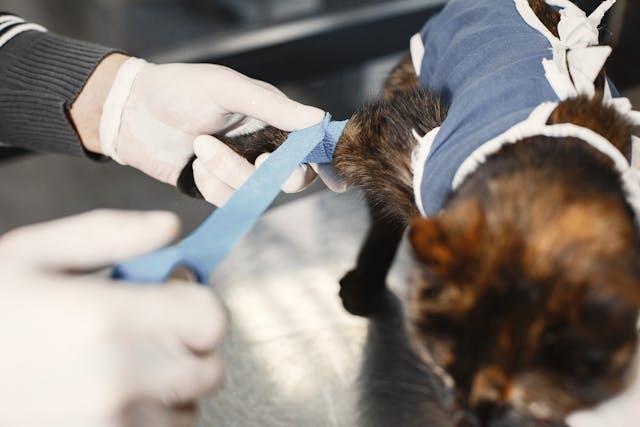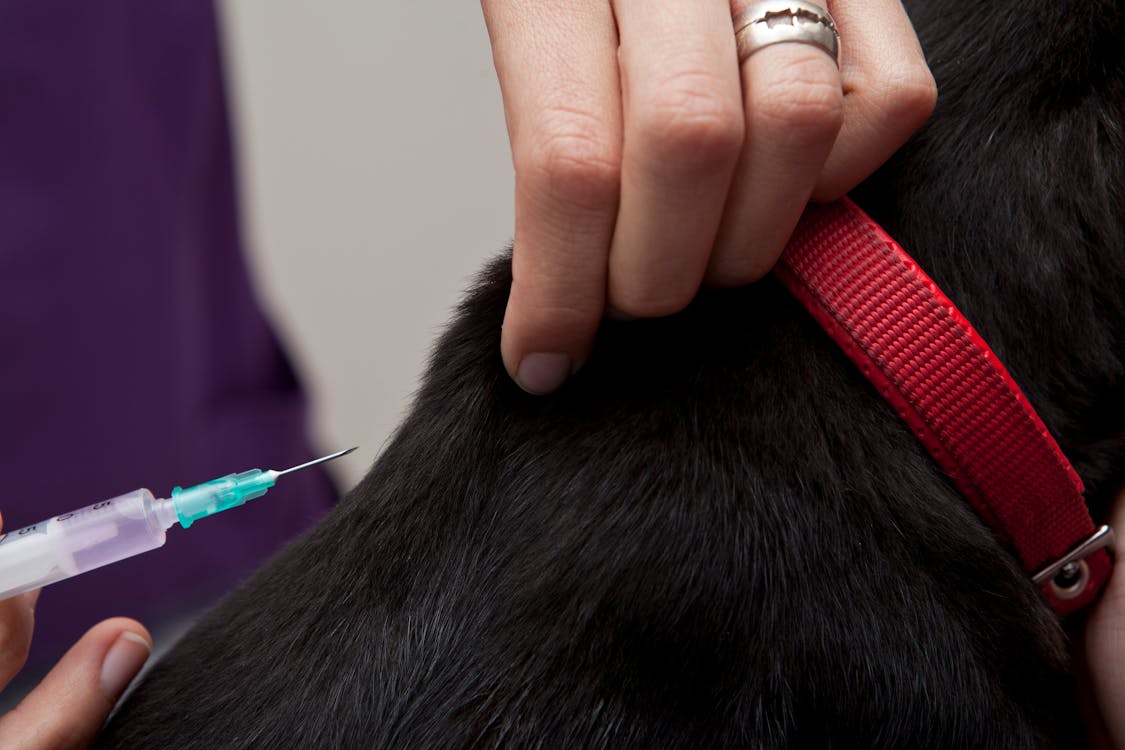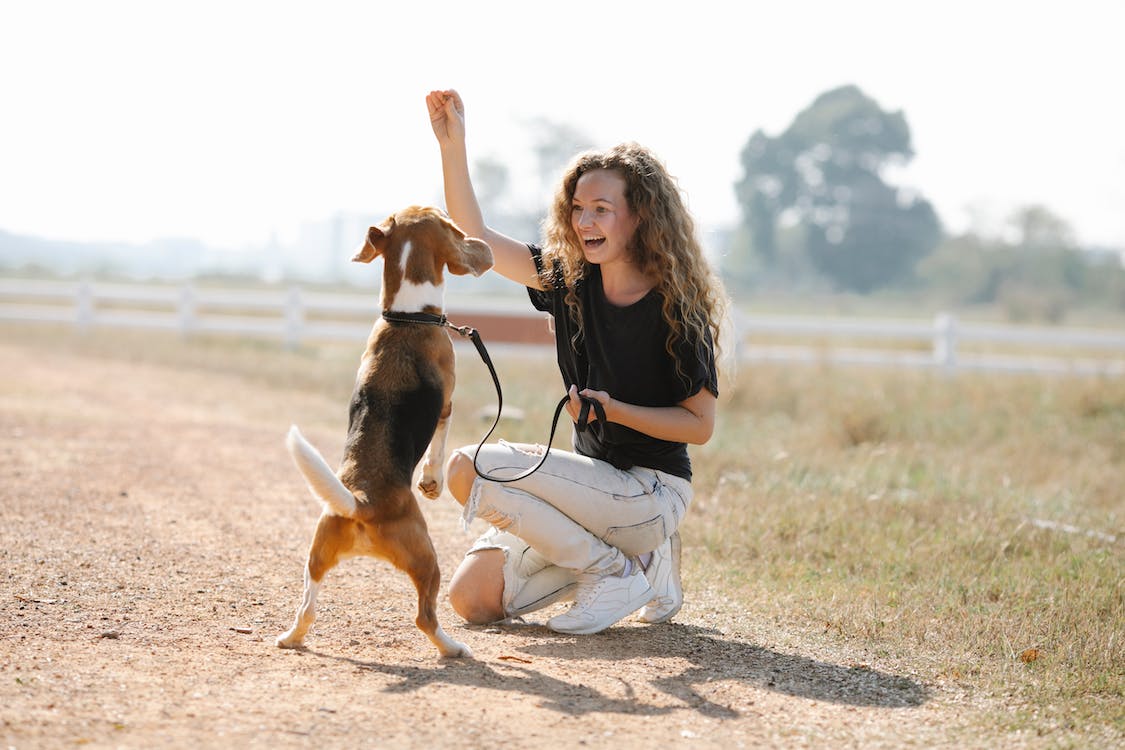When you’re miles from help and your furry friend is in need, preparation and knowledge become your best tools. You’ve likely considered the basics of off-grid living for yourself, but have you thought about what it takes to ensure your pet’s health in such circumstances?
From assembling a comprehensive first-aid kit to understanding the nuances of pet nutrition and the essentials of emergency care, there’s a lot to cover. What’s more, creating a care network and knowing when to seek professional help can be lifesaving.
Let’s explore how you can equip yourself to tackle these challenges, ensuring your pet remains healthy and happy, even off the grid.
First-Aid Essentials
In off-grid scenarios, having a first-aid kit tailored for your pet’s emergencies is crucial. The kit should be equipped with tools for wound cleaning, puncture and laceration care, and knowledge on handling choking or severe injuries. This means you’ll need to stock up on water and antiseptic solutions for cleaning wounds. Always keep a water bowl handy, not just for your pet’s hydration but also as part of your veterinary care toolkit for washing out wounds.
When dealing with punctures or lacerations, acting quickly to clean and protect the wound can prevent further complications. If your pet starts choking, knowing how to perform the Heimlich maneuver could save their life. Similarly, understanding how to apply a tourniquet for severe limb injuries is crucial; it can stabilize your pet while you seek a veterinarian.
Recognizing Emergencies
Knowing when your pet’s in trouble is crucial for their well-being, so it’s important to recognize the signs of an emergency. As a pet owner, being aware of your pet’s normal behavior is key. Any deviation from their usual patterns can be a red flag. Here are the top signs that indicate it’s time to seek veterinary treatment immediately:
- Difficulty Breathing, Excessive Bleeding, or Sudden Collapse: These are clear emergencies requiring immediate action.
- Persistent Vomiting or Diarrhea, Pale Gums: These symptoms might suggest serious health issues that demand urgent veterinary attention.
- Inability to Urinate or Defecate, Sudden Weight Loss: Such changes can indicate underlying health problems, signalling the need for a professional evaluation.
- Signs of Distress like Restlessness, Excessive Drooling, or Sudden Aggression: These behaviors can hint at pain or discomfort in your pet, necessitating a quick response.
Vaccination and Health Checks
Ensuring your pet’s health and longevity, regular vaccinations and annual check-ups are essential steps every owner should take. Vaccinations protect your furry friend from deadly diseases like rabies, distemper, and parvovirus. They’re not just shots; they’re a shield against illness, stimulating your pet’s immune system to build resistance against these specific diseases. And it’s not a one-size-fits-all deal. Your veterinary will tailor your pet’s vaccination schedule based on their age, lifestyle, and risk factors, ensuring they get the protection they need without overburdening their system.
But it’s not all about the vaccines. Health checkups play a crucial role too. These annual visits to the vet are your best defense against silent killers. They’re an opportunity for early detection of illnesses, giving your pet the best chance at a long and healthy life. Moreover, these checkups help prevent the spread of contagious diseases among pets, safeguarding not just your own, but the wider pet community.
Nutrition and Diet
While regular vaccinations and health checks are crucial, a balanced diet is equally important for your pet’s overall well-being. Ensuring your dog receives the right nutrition is paramount to maintaining their health, especially when you’re off the grid. Dog food should meet their specific needs, which vary by breed, age, and activity level.
Here’s what you need to consider:
- Protein and Fat Content: Adult dogs need a diet that’s about 18-25% protein and 5-15% fat. Make sure the dog food you select falls within these ranges to meet their energy requirements.
- Breed-Specific Diets: Some breeds have unique dietary needs. Consult with a vet to tailor a diet plan that suits your dog’s specific requirements.
- Avoid Toxic Foods: Never feed your dog chocolate, grapes, onions, garlic, or certain nuts. These can be harmful and even fatal in some cases.
- Access to Water: Always make sure your dog has access to clean, fresh water. Hydration is as crucial as nutrition in keeping your pet healthy.
Creating a Care Network
Establishing a reliable care network for your pet is essential, especially when living off-grid. You’ll need to create a robust system of support that includes local veterinarians, animal shelters, and pet care professionals. This network becomes your go-to for advice, emergency care, and regular check-ups.
Start by jotting down a list of emergency contacts. This should encompass phone numbers and addresses of nearby veterinary services, highlighting those familiar with the Society for the Prevention of Cruelty to animals and their standards.
Next, build connections with your neighbors, friends, and other community members. These relationships are invaluable, allowing you to form a mutual support system for pet care during emergencies. It’s also crucial to develop a communication plan. This ensures you’re always able to reach your care network quickly and efficiently, keeping them informed about your pet’s health needs.
Training and Prevention
After setting up a care network, it’s vital to focus on training and prevention to keep your pet safe and healthy in off-grid environments.
Training your dog in basic commands and behaviors isn’t just about good manners—it’s a critical safety measure. When you’re far from traditional veterinary care, preventing accidents becomes paramount. Here’s how you can take proactive steps:
- Dog Training: Teach your dog essential commands like ‘stay,’ ‘come,’ and ‘leave it.’ This training can prevent them from wandering into dangerous areas or eating harmful substances.
- Regular Exercise and Mental Stimulation: Keep your dog physically fit and mentally sharp with daily exercise and puzzles. A healthy pet is more resilient and less prone to stress-induced issues.
- Preventative Measures: Implement flea and tick prevention, maintain regular grooming, and ensure dental care to ward off common health problems. These steps are crucial in environments where veterinary assistance is scarce.
- Know Your Pet: Understand your dog’s normal behavior and vital signs. This knowledge can help you spot early signs of distress or illness, allowing for timely intervention with your stocked first aid supplies and medications.
Conclusion
In preparing for off-grid veterinary care, you’ve learned the importance of equipping yourself with first-aid essentials, recognizing emergencies, and understanding your pet’s health through vaccinations and regular checks. You know how crucial nutrition and a balanced diet are, alongside creating a reliable care network. By investing time in training and preventative measures, you’re setting your pet up for a healthier, safer life.
Remember, your preparedness and knowledge can make all the difference in your pet’s well-being off the grid.
